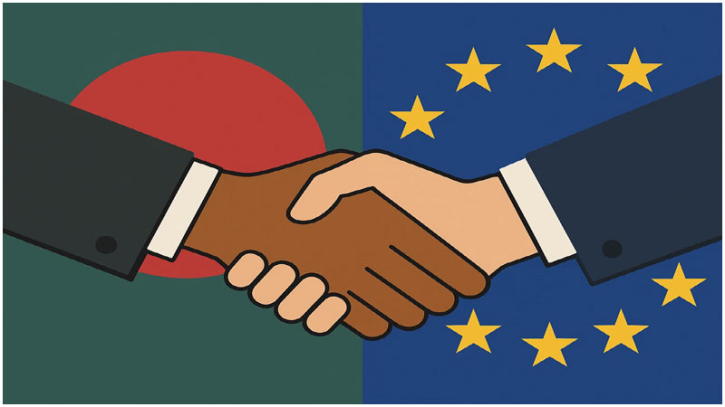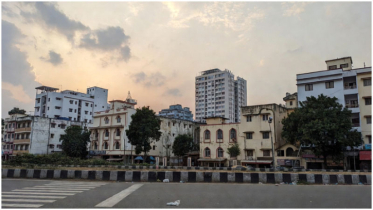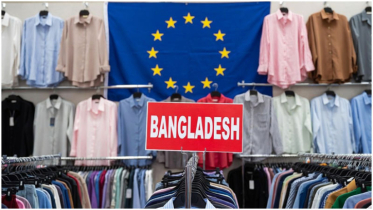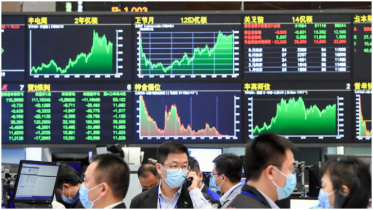Bangladesh moves to sign FTA with EU to secure post-LDC trade privileges

The interim government has launched an initiative to sign a free trade agreement (FTA) with the European Union, Bangladesh's largest export destination, in a bid to safeguard privileged access to its market after graduating from the least developed country (LDC) category in 2026.
The commerce ministry has completed a feasibility study showing that an FTA would benefit Bangladesh, paving the way for formal negotiations when an EU delegation visits Dhaka this November.
"We've completed a feasibility study which shows Bangladesh will benefit from such a deal. Preliminary discussions have already taken place, and the EU is interested," Commerce Secretary Mahbubur Rahman told The Business Standard.
He said the ministry would soon write to the EU to decide on the next step — whether Bangladesh will receive the EU's draft text or send its own. "The EU has signed FTAs with many countries, while we are also in talks with several partners," he added.
According to the Export Promotion Bureau, the EU accounted for $21.38 billion or 44% of Bangladesh's total exports in FY2023-24. EU data show that 94% of its imports from Bangladesh last year were textiles, while machinery (35%) and chemicals (23%) dominated the EU's exports to Bangladesh.
Duty-free access for garments uncertain after 2029
Under the current Everything But Arms (EBA) scheme, Bangladesh enjoys duty-free access to the EU market, which will continue for three years after graduation, until 2029.
After that, Bangladesh is expected to qualify for the Generalised Scheme of Preferences Plus (GSP+). However, the GSP+ framework does not cover duty-free access for ready-made garments — meaning exports could face tariffs averaging 12%, eroding competitiveness in Bangladesh's main export sector.
Moreover, EU rules stipulate that if imports of a product from a particular country exceed 9% of the EU's total imports of that product, it loses GSP+ eligibility. Bangladeshi garments currently account for around 16.5% of the EU's apparel imports, which would disqualify the sector from GSP+ benefits.
As an LDC, Bangladesh currently enjoys relaxed "single-stage" rules of origin — allowing it to import fabric, stitch garments locally, and still qualify for duty-free access. Under GSP+, however, the stricter "double-stage" rule applies, requiring two of three stages (spinning, weaving, manufacturing) to be done domestically.
Dhaka has requested the EU to relax these rules, and although EU officials have verbally indicated flexibility, no formal commitment has yet been made.
Bangladesh remains the largest beneficiary of the EU's EBA scheme, with $19.94 billion worth of exports using the facility in 2023 at a 91% utilisation rate. EU investment stock in Bangladesh totalled $2.45 billion that year, while Bangladeshi investment in the EU stood at $110.88 million.
Experts divided over FTA vs GSP+ route
Trade experts say while an FTA could help sustain duty-free access, pursuing the GSP+ route first may be more pragmatic.
"If Bangladesh can retain GSP+ with duty-free access for garments without an FTA, that would be most advantageous," said Dr Abdur Razzaque, chairman of the Research and Policy Integration for Development (RAPID). "Otherwise, the FTA route will be necessary — though it requires reciprocal concessions and will take time."
He cautioned that if GSP+ benefits lapse before an FTA is concluded, Bangladesh should seek interim arrangements to preserve current preferences. "FTA negotiations can take years. For example, India's talks with the EU began in 2007, stalled in 2013, and only resumed in 2022," he said.
Hafizur Rahman, former director general of the finance ministry's WTO Cell and current FBCCI administrator, said the FTA initiative is prudent from a risk management standpoint.
"India is negotiating an FTA with the EU, and Vietnam already has one. Under the Vietnam-EU deal, garments must meet a two-stage origin rule to qualify for duty-free entry," he noted. "By starting talks early, Bangladesh can try to preserve its current single-stage advantage."
Former trade commission member Mustafizur Rahman said the EU has verbally assured that Bangladesh would continue to enjoy GSP+ and duty-free access for garments beyond 2029. "It would have been wiser to settle this issue before launching FTA talks," he added.
BGMEA President Mahmud Hasan Khan supported the initiative, saying, "Signing an FTA with the EU is essential, but ensuring that our garments retain duty-free access must be the top priority."
PCA signing also planned in November
Separately, the foreign ministry is preparing to sign a Framework Agreement on Comprehensive Partnership and Cooperation (PCA) with the EU next month.
The PCA aims to strengthen collaboration on human rights, good governance, democracy, labour standards, migrant protection, and gender equality. Officials said both sides held a virtual meeting on 9–10 October to finalise the draft.
An official involved in the talks said the EU insisted on clauses requiring Bangladesh to implement UN human rights conventions. "Bangladesh explained that it is in a political transition and a new elected government will take office early next year," the official said.
EU representatives reportedly expressed surprise at the objection, asking, "Why are you reluctant to commit to your own people's rights?"
Commerce Secretary Mahbubur Rahman clarified that the PCA and FTA are separate processes, even though both are expected to advance during the EU delegation's visit in November.
Source: The Business Standard.
.png)




